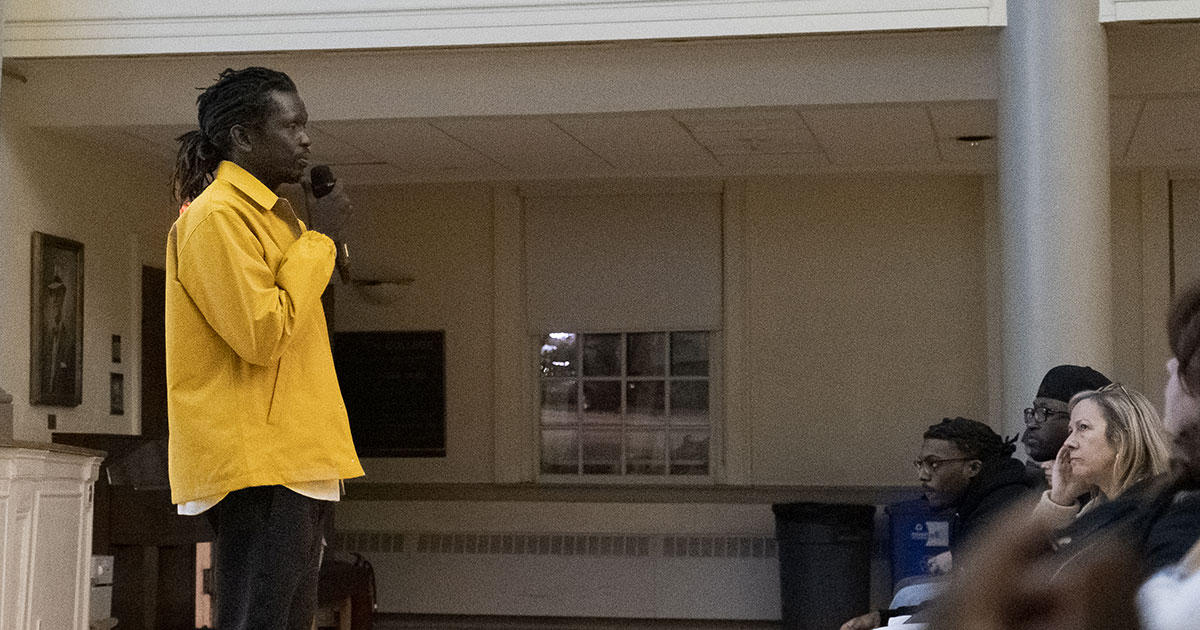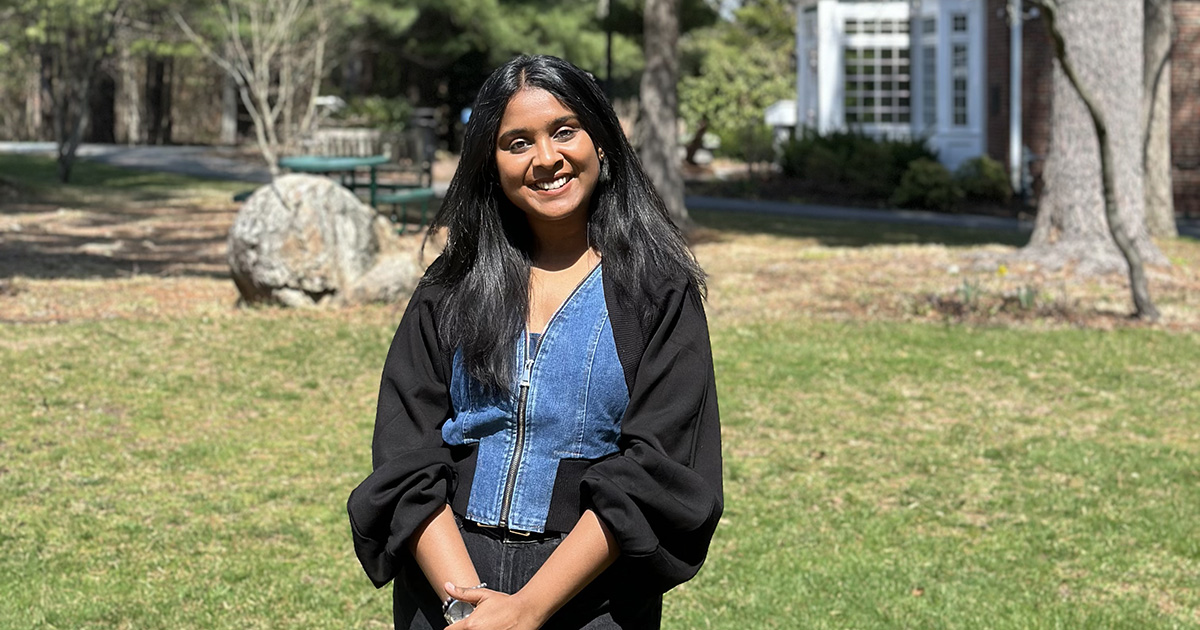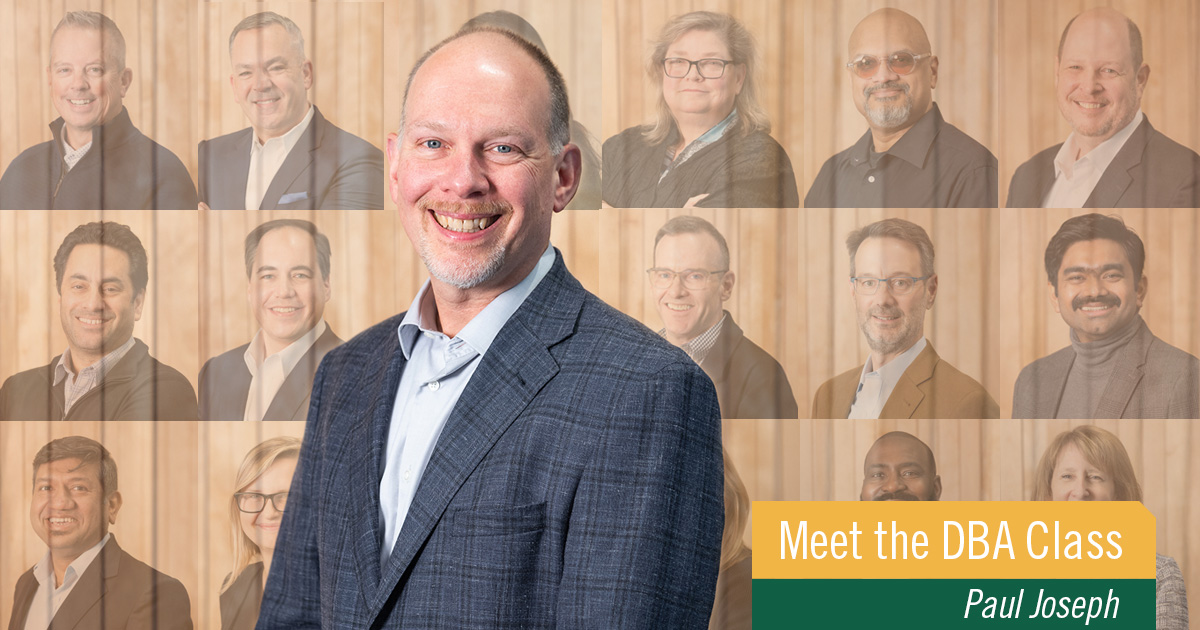The Inspirational Journey of Emmanuel Jal

As Emmanuel Jal spoke, the audience in Knight Auditorium fell silent—a deep, church-like silence of people paying close attention, afraid of missing a word.
A hip-hop artist and peace activist, an author, actor, and entrepreneur, Jal was telling his life’s story, and he was unafraid to talk of its most traumatic moments. Born during a troubled time in South Sudan, he was coerced into becoming a child soldier at the age of 7. “I was born, and my country was at war with itself,” he said.
Eventually, he and 400 other child soldiers made an escape, and Jal told the Babson College audience of their harrowing journey. For three months, they were on the move and without a home. Jal was hungry, dehydrated, and exhausted. Many of the children died.
Often when faced with challenging moments, Jal relied on his imagination. “When I went to my imagination, it allowed me to see the future,” Jal said. “It gives you hope. If you see your future positively, you are able to move forward.”
During one particular dark time in those three months, however, his imagination failed him. “This part of the journey is my lowest point,” he said. “I tried to see my future. All I saw was a sea of doubt. It wasn’t giving me the positivity I was hoping for.”
Ultimately, Jal met a British aid worker who smuggled him to Kenya, where he attended school and changed the course of his life. Today, he is a recording artist with seven albums and a social entrepreneur who founded Gua Africa, which supports those from South Sudan affected by war and poverty. Jal’s life serves as an illustration of healing, trauma overcome, and the power of imagination to envision a better future for oneself.
“It is an honor to have Emmanuel here at Babson,” College President Stephen Spinelli Jr. MBA’92, PhD told the crowd at Knight. “Emmanuel’s life is an example. You can see the power of understanding and redemption and growth. He is a living example of what we are trying to teach.”
A Story to Tell
Jal’s early March visit to campus marked the third time he has come to Babson since 2014. When asked why he continues to return, he said he feels an affinity with the entrepreneurial spirit of the school. “It is the energy, the people,” he said.
As part of this year’s visit, Jal spoke to classes on writing and global pop and attended a luncheon at the Institute for Social Innovation. The crowd at his evening appearance at Knight was filled with students. “You are all entrepreneurs,” he told them. “You are all people who love problems, wrestling with them, and finding the treasures that are hiding behind them.”
View this post on Instagram
The Knight event included song, dance, and reflection, and it began with Jal walking down the center aisle singing “We Want Peace,” a 2010 song that was part of a wider campaign spearheaded by Jal calling for peace in Sudan. Alicia Keys, George Clooney, and President Jimmy Carter were among those who supported the campaign. “Let’s scream and shout because we want peace,” Jal sang.
As a young person, Jal said that “all I had was a story to tell,” but he imagined a rich, rewarding life for himself and has since shaped a wide-ranging career. “I recognize life as a work of art we create,” he said. Outside of his activism and musical exploits, he has published an autobiography, established a line of healthy foods called Jal Gua, and even starred in the film The Good Lie with Reese Witherspoon.
A big theme of Jal’s Knight event was how he worked to transcend the trauma he experienced as a child. “My mind was blocked because of my childhood experiences,” he said. “You have flashbacks during the day and nightmares at night.”
He asked attendees to close their eyes, envision what they want to create with their lives, and let go of whatever is blocking them. “If you see it, you can build it,” he said. “Tell your heart to let go of anything holding you back.”
Not a Usual Entrepreneur
Sadie Burton-Goss, Babson’s chief diversity and inclusion officer, was in attendance at Knight. She praised Jal’s courage in talking about the trauma he has endured.
“He recognizes that his story is powerful and able to provoke hope, joy, optimism, and action,” Burton-Goss said. “The most powerful people have experienced trauma of some nature, but they don’t leave it there. They can rise above whatever has happened and help others to do the same.”
“If you see it, you can build it. Tell your heart to let go of anything holding you back.”
Emmanuel Jal
That’s a message that students need to hear, said Professor Elizabeth Swanson P’19, Babson’s Mandell Family Foundation Senior Term Chair in Literature and Human Rights. Swanson was instrumental in bringing Jal to campus.
“He represents entrepreneurship of a different kind, coming from a place of trauma to survival,” Swanson said. “For our students to have examples of people who have come through the fire, it is very inspiring. He is not your usual entrepreneur.”




